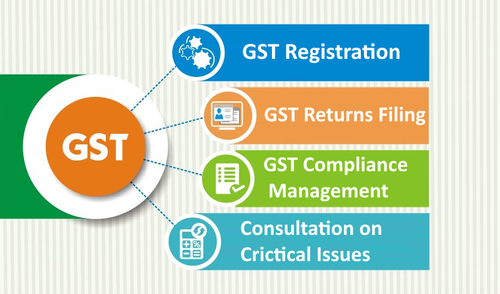Why Singapore GST Registration is Essential for Your Start-up
Why Singapore GST Registration is Essential for Your Start-up
Blog Article
Making Best Use Of Tax Efficiency: Professional Tips on Navigating the GST Enrollment Maze for Local Business
Navigating the intricate landscape of Product and Provider Tax Obligation (GST) enrollment can be a labyrinthine job for tiny organizations intending to maximize their tax effectiveness. Recognizing the qualification requirements, meticulous documents needs, calculated timing factors to consider, and skilled registration procedure suggestions can substantially impact a company's monetary standing. Compliance with GST laws is vital, and adhering to best techniques can enhance operations and prevent potential mistakes. In this conversation, we will check out skilled understandings and workable recommendations that can encourage small companies to navigate the GST enrollment maze efficiently and optimize their tax effectiveness.
Eligibility Requirements
Eligibility demands for Small Service GST Enrollment incorporate certain requirements that companies must meet to conform with tax guidelines. To certify for GST enrollment, a service must have an annual turnover going beyond the limit set by the tax obligation authorities, which varies by nation.

Paperwork Needs
The required paperwork typically includes proof of company enrollment or consolidation, identity and address evidence of the business owner, pictures, financial institution account information, and evidence of the major location of business. Additionally, businesses require to give details of their company activities, consisting of the products or services provided.
Apart from the mandatory documents, services may likewise be called for to send additional details based upon their particular scenarios. This could include documents connected to partnerships, the consent of signatures, or any type of various other relevant agreements. Keeping all necessary paperwork arranged and easily accessible can simplify the registration process and aid companies follow the needs efficiently - Singapore GST Registration. Failure to provide the required documents may cause hold-ups and even being rejected of the GST enrollment application. Precise focus to information and adherence to the documents standards are essential for a successful GST registration procedure over at this website for little organizations.
Timing Considerations
Thinking about the crucial paperwork demands have actually been carefully resolved, the following critical facet for tiny companies starting the GST registration procedure is the critical monitoring of timing factors to consider. Timing plays a crucial role in GST enrollment, impacting not only conformity yet also economic facets of the company. Little companies require to carefully plan the timing of their GST registration to make best use of advantages and decrease prospective risks.

Moreover, organizations must straighten the timing of their GST registration with their functional preparedness. Sufficient preparation, such as upgrading accounting systems and training staff, is necessary to perfectly incorporate GST needs into everyday procedures. By strategically handling timing factors to consider, local business can navigate the GST registration process effectively and maximize their tax obligation effectiveness.
Registration Process Tips
Efficiently browsing the GST enrollment process requires tiny businesses to implement critical and aggressive registration process suggestions. This includes company enrollment files, proof of address, financial institution statements, and identification evidence of the company owners.
In addition, recognizing the limits and requirements for GST enrollment based upon the specific state or territory where business operates is important. Some states have different turn over thresholds that cause obligatory registration, so being notified concerning these thresholds can assist companies prepare in advance.
One more important suggestion is to think about looking for specialist assistance from accountants or tax specialists that concentrate on GST registration. Their know-how can streamline the process, decrease errors, and make certain conformity with all guidelines.
Conformity Ideal Practices
Tiny services must focus on compliance to stay clear of penalties and keep a good standing with tax obligation authorities. Tiny service owners must regularly evaluate federal government guidelines and seek professional guidance if required to guarantee they are fulfilling all needs. By integrating these compliance best techniques into their procedures, small companies can navigate the complexities of GST enrollment with confidence and efficiency.
Final Thought
Finally, local business can browse the GST registration maze by ensuring they fulfill eligibility criteria, gather needed documentation, take into consideration timing ramifications, comply with registration procedure pointers, and comply with compliance ideal techniques. By making best use of tax obligation performance via correct GST enrollment, businesses can boost their financial management and visit the website operations.
Navigating the complex landscape of Product and Provider Tax (GST) enrollment can be a labyrinthine task for small businesses aiming to optimize their tax effectiveness.Qualification needs for Small Organization GST Registration encompass certain requirements that companies should meet to comply with tax policies. The required documentation normally consists of evidence of service registration or incorporation, identification and address proofs of the company owner, pictures, financial institution account details, and evidence of the principal area of business. Furthermore, businesses need to supply information of their organization tasks, consisting of the solutions or items supplied.Effectively browsing the GST enrollment procedure requires tiny businesses to implement positive and critical enrollment procedure tips.
Report this page